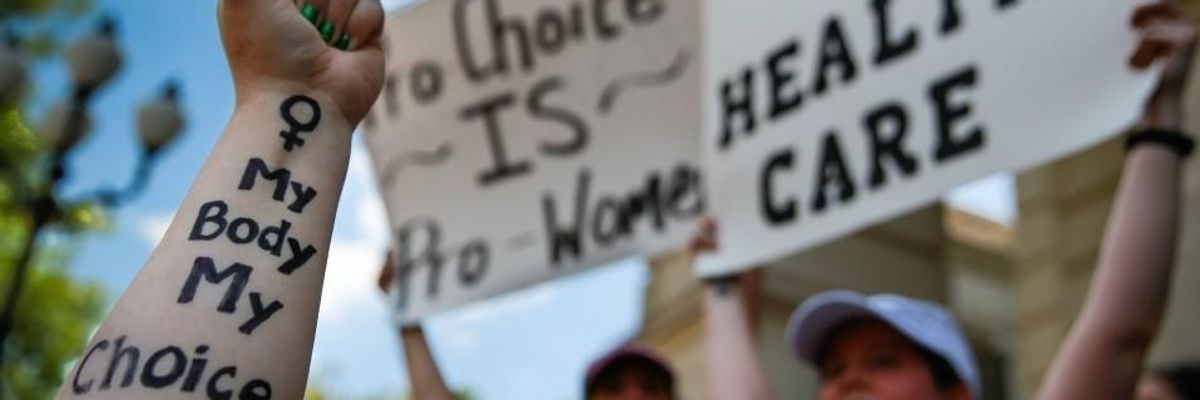Reproductive rights advocates cheered news that Sen. Tammy Duckworth and Rep. Barbara Lee planned to re-introduce the Equal Access to Abortion Coverage in Health Insurance--or EACH--Act in Congress on Thursday in the latest bid to reverse what Lee called the "anti-choice" and "blatantly racist" Hyde Amendment.
"The Hyde Amendment has been used by anti-choice politicians to keep abortion care out of the reach for people already marginalized by our healthcare system."
--Rep. Barbara Lee
"This isn't about what side you're on in the abortion debate, it's about equality and opportunity plain and simple," Duckworth (D-Ill.) said on a call with reporters Wednesday, according to HuffPost. "Whatever you think about the procedure, we should all agree that what's legal for wealthy Americans should not be so inaccessible for Americans of color and low-income Americans."
Lee (D-Calif.), who was also on the Wednesday call, said: "Let's call this amendment what it is: It's anti-choice and it's blatantly racist. We know it disproportionately impacts low-income people and women of color. It should never have been signed into law and it's way past time that it was repealed."
"The Hyde Amendment has been used by anti-choice politicians to keep abortion care out of the reach for people already marginalized by our healthcare system," she added.
Although the landmark 1973 U.S. Supreme Court ruling Roe v. Wade legalized abortion throughout the nation, the 44-year-old Hyde Amendment prohibits federal Medicaid funding for most abortion services. Three extremely narrow exceptions were added in 1994 permitting Medicaid funding for abortions in cases of incest, rape, and if a continued pregnancy endangers patient life.
Reproductive rights groups long have pushed lawmakers to repeal the amendment, with Planned Parenthood Action Fund arguing that it "is particularly harmful to people with low incomes, people of color, young people, and immigrants--who all disproportionately rely on Medicaid for their healthcare coverage."
In 1980, Thurgood Marshall, the first Black justice to serve on the Supreme Court, asserted that "the Hyde Amendment is designed to deprive poor and minority women of the constitutional right to choose abortion."
Advocates hailed the imminent re-introduction--versions of the bill have been introduced several times since 2015--of the EACH Act. More than 130 reproductive rights groups in the All* Above All coalition have endorsed the proposed legislation.
Planned Parenthood Action Fund president and CEO Alexis McGill Johnson tweeted that "Hyde disproportionately harms Black people, Latinos, and members of the LGBTQ+ community, who because of systemic racism and oppression are more likely to get their health insurance through Medicaid and other public health programs. We need the EACH Act now."
Ilyse Hogue, president of NARAL Pro-Choice America, said in a statement that "thanks to the reproductive justice movement's dedication and leadership, Congress has the opportunity to bring us one step closer to a world where access to abortion care doesn't depend on where you live, how you are insured, or how much money you have."
"Reproductive freedom is not a reality unless we all have the freedom to make decisions about our health and futures with dignity and without interference from politicians," added Hogue.




